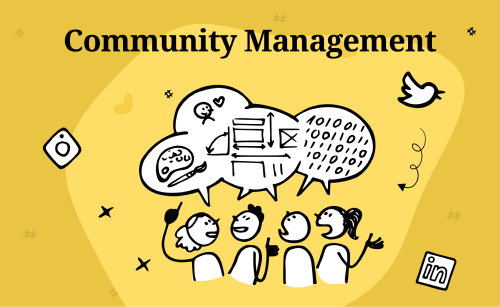Social networks are now the mainstay of online communities in today’s digital environment, acting as hubs for interaction, connection, and teamwork. It is crucial for creating meaningful connections, increasing participation, and giving users a feeling of community in these online communities. The article will look at the importance, tactics, and benefits that community management offers to companies and users in this piece, which will discuss its profound effects on social networks.
Understanding of Social Networks
Within social networks, It refers to a variety of actions taken to support and encourage communication within virtual communities. It entails creating an environment where people feel like they belong, leading conversations, attending to issues, and encouraging constructive participation. The communities would not function without their community managers, who facilitate interactions, enforce rules, and create a safe space that encourages connection and cooperation.
The Significant Impact
Social networks need effective community management to be successful and long-lasting. It supports user loyalty, relationship development, and trust-building. Social networks can draw and keep users, promote engagement, and set themselves apart from rivals by fostering a feeling of community. Insights into user preferences, actions, and trends are also gained, which helps social networks change and grow in response to the demands and interests of their users.
Strategies for Successful Community Management
Determine the community’s aims and objectives and make sure they are in line with the platform’s values and overarching mission. Develop real connections with the people in the community by building rapport, trust, and a feeling of unity.
Organize forums, surveys, competitions, and other interactive events to encourage members to interact with one another. Provide community members with opportunities, resources, and useful content that align with their interests and needs, ensuring they are informed, entertained, and inspired.
Enforce community rules fairly and consistently, dealing with inappropriate behavior right away and promoting a polite, inclusive atmosphere. Engage community members in conversation by listening to their opinions and concerns, and address problems in a timely and open manner to foster trust.
Managing diverse communities with differing viewpoints, habits, and interests calls for diplomacy and skillful navigation. Community managers have to handle sensitive situations like member conflicts, spam or abusive behavior, and striking a balance between community standards and freedom of expression.
Encourage community members to work together and share knowledge to enable them to offer their knowledge and perspectives. Analyze community metrics and feedback regularly to determine performance and pinpoint areas that require improvement. Then, iterate strategies to promote ongoing engagement and growth.
In social networks, community management is essential in determining the dynamics and culture of online communities. The success and vitality of these digital ecosystems are facilitated by community managers who cultivate member engagement, establish relationships, and offer value. The difficulties they encounter, knowledgeable community managers can harness the force of community to foster deep relationships, support teamwork, and leave a lasting impression on social networks. This article will always play a crucial role in creating vibrant online communities that improve the lives of their members as social networks develop and expand.




Leave a reply